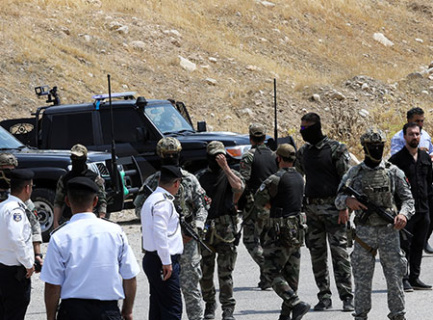
In the volatile aftermath of its recent military confrontation with Israel, Iran is facing a dramatic surge in violence along its borders. Kurdish and Baluch separatist groups are intensifying their attacks on security forces, destabilizing the country’s western and southeastern peripheries in what analysts describe as a direct consequence of the regional conflict.
The unrest is concentrated in two key areas: the western province of Kurdistan, bordering Iraq, and the southeastern province of Sistan and Baluchestan, which neighbors Afghanistan and Pakistan. Recent incidents underscore the escalating threat, including the assassination of a senior commander of the Basij paramilitary force in Zahedan and a separate deadly attack on a courthouse in the same city. Clashes between Iranian border guards and militant groups have now become a regular occurrence.
Tehran officially frames the escalating violence as part of a coordinated “American-Israeli conspiracy.” A recent report from Iran’s Ministry of Intelligence alleged that during the conflict, Israel attempted to recruit hundreds of foreign mercenaries to operate with Baluch separatists. The ministry claims it thwarted this plot, along with a separate attempt by nearly 150 militants to infiltrate from Syria. Iranian officials use the term “cognitive warfare” to describe what they see as a psychological campaign by their adversaries to sow public despair and undermine the state.
In response, Iran is pivoting to secure its frontiers. The country’s parliament is already debating proposals to allocate more funds for border security, a move the Institute for the Study of War (ISW) links directly to the rise in separatist attacks. Tehran is also expected to ramp up diplomatic engagement with Iraq, Pakistan, and the autonomous Kurdistan Regional Government in an effort to curb the activities of militant groups operating from their territories.
According to regional experts, the dynamics differ in each region. In Sistan and Baluchestan, the Baluch group Jaish al-Adl is likely probing for weaknesses and attempting to rebuild its operational capacity after a major Iranian security crackdown in late 2024. In the west, the situation with Kurdish groups escalated after Iran accused Israel of launching drones from Iraqi Kurdistan during the war. This led to a tit-for-tat cycle of unconfirmed Iranian drone strikes in the area and retaliatory sniper attacks by Kurdish militants against Iranian patrols, further inflaming the sensitive border region.
